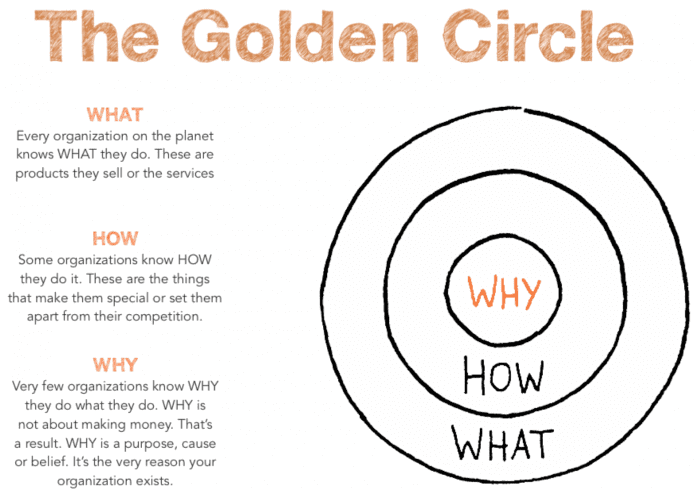
By: Chris Boggs | Big "I" Virtual University Executive Director
This article was originally featured in our July Wisconsin Independent Agent Magazine. Read the full issue here.
An insurtech firm I prefer not to name, other than to say they think they are geniuses when it comes to policies, was founded by two people who believed purchasing insurance was too frustrating. In fact, their website specifically states, “Navigating the world of insurance is confusing, stressful and a step backward in time....”
Because the founders were “consultants to the top insurance companies,” they knew there had to be a better way for consumers to purchase insurance. Their stated mission is help consumers get the insurance they need and feel good about what they got. Sort of sounds like something an agent does, but that’s not the point of this article.
Towards this goal, the firm publishes consumer-facing articles. I recently read through several of the articles and felt they were relatively well written for consumer consumption and largely correct. What disappointed me was the “level” of credit they gave the writers; each writer was listed as, “Insurance Expert.”
The title “insurance expert” caught my eye - in a big way. It stands to reason that obviously these writers have many years of insurance experience since they are “experts” Uh, they didn’t. Here are partial bios as examples:
• [Author’s name redacted[ is an Insurance Editor at [Insuretech name removed] in New York City and an expert in homeowners insurance. Previously, he was working as a freelance writer for the New York State Nurses Association and wrote for the Michigan
Information Research Service. [Writer] has a B.A. in journalism from [University Name Redacted.]
• [Author’s name redacted] is the Associate Director of SEO Content at [Insuretech] in New York City. His writing on insurance and personal finance has appeared on Betterment, Inc, Credit Sesame, and the Council for Disability Awareness. [Writer] has a degree in English from the [University name removed].
• [Author’s name redacted[ is the co-founder of [Website name removed], a groundbreaking personal finance site for millennials that was named one of Time’s 25 Best Blogs of 2012. [Author’s] work has been published in New York Magazine, Glamour, The Guardian, BuzzFeed and more.
Am I missing something? Would the background of ANY of these writers qualify them to be considered an “insurance expert”? I don’t think it does, but the public doesn’t know any better. Calling yourself an expert doesn’t make it so.
Unfortunately, the combination of missing or incorrect policy information and the misappropriation of the title “insurance expert” pushed me to send a rather
“snotty” email to this group. As of this writing, I have not received a response. Would you like to see what I wrote? Before you read it, remember, I’ve already
acknowledged I was a bit pompous. With that as prologue, what follows is a slightly edited version of my email.
I was reading through several of your homeowners’ and personal auto insurance coverage articles today and wanted to get in touch with you.
Yes, insurance can be confusing to those not in the business, but there is a way to explain it so the uninitiated can easily and quickly grasp its concepts and realities.
Secondly, I would be very careful calling anyone an “insurance expert” unless he/she has many years of experience in the insurance business - and is well-versed in insurance coverages and concepts. Writing ABOUT insurance in newspapers and blogs doesn’t make someone an insurance expert; neither does being in the financial and investment business. Property and casualty insurance is far more complicated than can be known just writing about insurance. You have to be “covered in the mud of an insurance policy,” you have to have actually read the policy from cover to cover, several times, and you have to know how deep the depths of insurance really are before you can begin to be considered an expert.
Further, a true expert doesn’t consider himself or herself an expert. In fact, those who truly do qualify as experts quickly shy away from being called experts; the reason, because they are so well versed in insurance, they know there is far more to know than they already do. Any person who calls or truly believes he or she is an expert doesn’t know what he/she doesn’t know.
Someone holding himself or herself out as an “expert” without the credentials to back it up is dishonest and harmful to those depending on the information the so-called “expert” has provided.
So, my recommendations are: correct the incorrect information; and don’t refer to anyone as an insurance expert who doesn’t have the necessary time and training to qualify as one.
Just my personal recommendations to you; take them or leave them as you so desire.
OK, I realize I let my emotions get the best of me. I also realize nothing I said will change their attitude or actions. And lastly, I know that “insurance expert” is just their way to market their “brilliance.” But it needed to be said.
But this is what I find truly interesting, they note on their site that the information they provide should not be relied upon; in fact, they intimate that agents are the better source of information. Here is the disclaimer:
[Insuretech’s name withheld] editorial content is not written by an insurance agent. It’s intended for informational purposes and should not be considered legal or financial advice. Consult a professional to learn what financial products are right for you.
I take certain satisfaction in this disclaimer. Evidently, their “insurance experts” are not as valuable as insurance agents.
Here are some thoughts about being an “expert” of any kind.
• True experts worry more about what they don’t know than what they do know, continually looking for ways to fill their knowledge gap. Self-proclaimed experts ignore the breadth of what they don’t know and are satisfied (mainly because they don’t know what they don’t know).
• True experts are rarely absolutely certain. Self-proclaimed experts are rarely in doubt.
• True experts admire other experts and desire to learn from them. Self-proclaimed experts don’t see anyone else as an expert, feeling others have nothing to offer.
• True experts listen to and value the opinions and advice of others. Self-proclaimed experts think theirs is the only opinion that matters.
• True experts openly admit when they don’t know the answers. Self-proclaimed experts ALWAYS know the answer - even when they don’t..
• True experts apply the experience learned from past accomplishments to accomplish more. Self-proclaimed experts rest on past accomplishments.
• True experts don’t really like being referred to as experts. Self-proclaimed experts revel in such an introduction.
• True experts desire to give all their knowledge away so others can be better. Self-proclaimed experts hold on to their knowledge so others have to come to them.
• True experts do not proclaim themselves experts - others do. Self-proclaimed experts use the term as a marketing ploy.
• Be wary of anyone who eagerly takes on the mantle of “expert,” they probably aren’t. If you call yourself an “expert,” you probably aren’t.
One last thought, if the word “expert” is used anywhere on your website or in your marketing, you better be one because that is the standard/expectation that you have set. Afterall, who do you expect more from, the apprentice of journeyman electrician or the master electrician? The best course of action is to take the term “expert” off all websites and marketing materials.
When you are an expert, you won’t feel like one. If you feel like one, you aren’t one. The more you know, the more you realize you don’t know. And people who don’t know, aren’t experts - at least in their minds.


